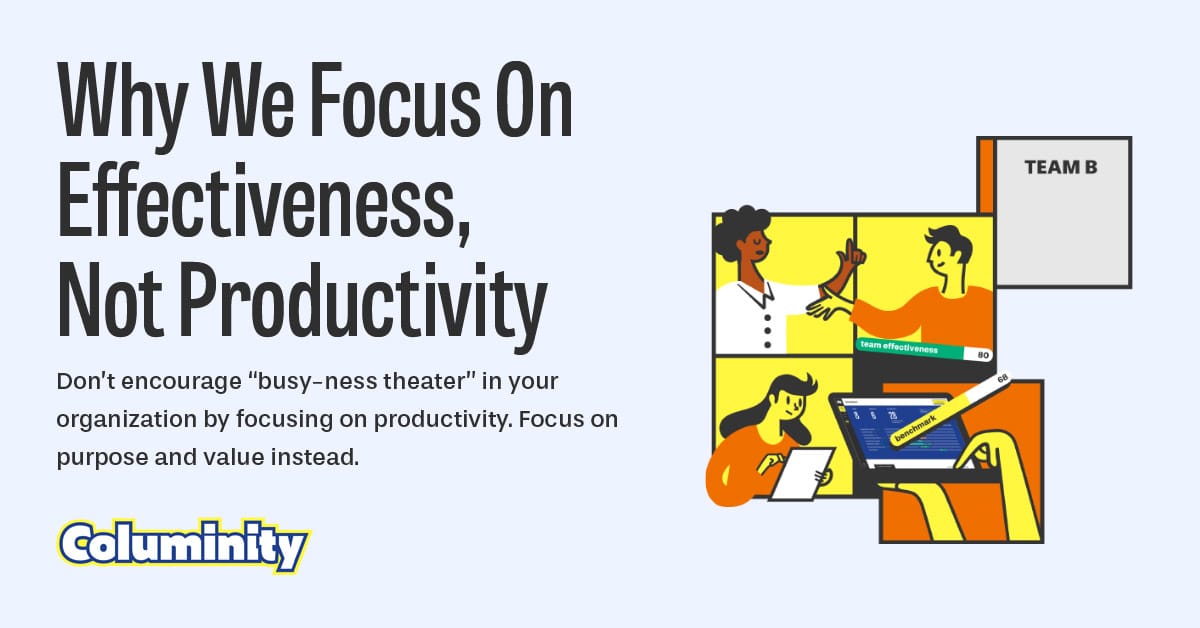Why We Focus On Effectiveness, Not Productivity

Teams that work hard and produce lots of outcomes are not necessarily effective. What is the value of this productivity when internal release cycles are so slow that it takes months to reach actual customers? What is the value of this productivity when the quality of what teams produce dissatisfies stakeholders? What is the value of this productivity when the work isn't actually solving the problems that should be addressed?
Focus On Productivity: Busy-ness Theater
Systems optimize towards the organizational metrics in use. If you focus on productivity, you encourage the appearance of busy-ness in your organization. You can recognize this with these symptoms:
- Work items move to "Done" quickly, but at the cost of lower quality.
- More quality issues as work is rushed to be completed.
- Tough problems, that can't be completed quickly, will be ignored in favor of low-hanging fruit. Maintenance and refactoring are ignored.
- People are more likely to burn-out as they try to keep up.
- "Everyone for themselves"-attitudes will prevail over time, undermining collaboration and teamwork.
- Lower customer satisfaction as what is delivered does not actually address their needs.
Another approach is to focus on effectiveness, or the degree to which the work actually satisfies customers and other stakeholders, and is done in a way that is also fulfilling for employees and teams. This approach highlights the purpose of the work in the eyes of those who perform it. The aim is not get work done as quickly as possible, but to ensure that what is done is meaningful, relevant and useful.
Focus On Team Effectiveness Instead
This is why team effectiveness is at the heart of the metrics in Columinity. Not individual effectiveness, because nobody can solve complex problems completely on their own. In the modern workplace, people have to work together to solve problems, in collaborations called "teams".
We focus on team effectiveness in a number of ways:
- Teams invite their stakeholders (customers, users and other stakeholders) to evaluate the quality of what teams do for them. Stakeholders evaluate this on four axes: quality, responsiveness, collaboration and overall value.
- Teams evaluate how fulfilling and motivating the work is for them (team morale).
- We provide three scientific models that identify a number of factors that empirically - supported by data from real teams - contribute to higher team effectiveness. If teams invest in those factors, we expect them to become more effective. Columinity provides extensive evidence-based suggestions to make this concrete, actionable and practical.

From Teams To Entire Organizations
One effective team doesn't make your organization effective. So Columinity allows you to aggregate to the level of value streams, departments or entire organizations (with the Teams Dashboard) or even across different organizations (with the Coaching Center). Here too, we show which factors in your organization seem most in need of intervention, so that your teams and your organization as a whole becomes more effective.

Assess how effective your team is and receive feedback on how to improve

